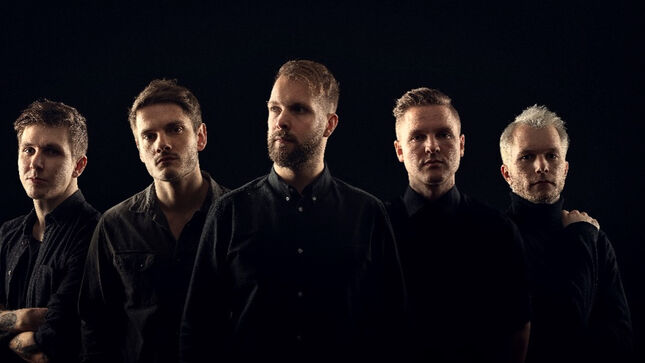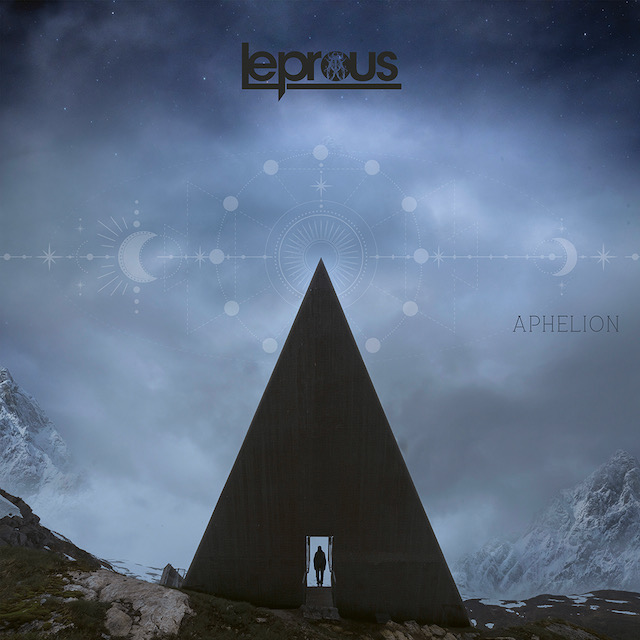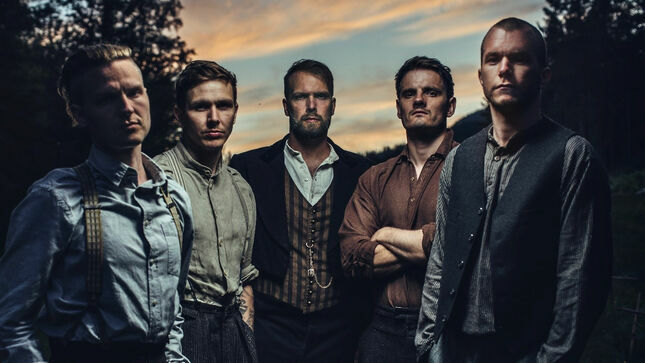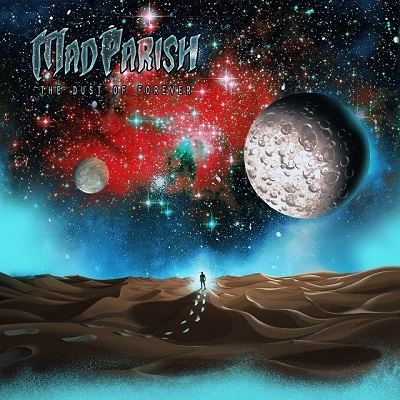LEPROUS – EINAR SOLBERG Discusses Aphelion, Disastrous Tours, Healing And Recovery Through Music
September 20, 2021, 3 years ago

For those with a positive outlook on life, there's light at the end of the tunnel of COVID-19. A return to a semblance of normalcy for the music industry beckons, and with it a return to what we have taken for granted.
Norway’s Leprous, in their seventh full-length album Aphelion (available now through Century Media Records), is the sonic embodiment of a light at the end of the tunnel, both for us as a group of like-minded music lovers, and for frontman Einar Solberg, who owns every ounce of his struggle with mental health and daily recovery on a record that's every bit a personal statement as it is polished studio showcase.
In this, perhaps their most diverse and enigmatic offering, Leprous makes a definitive statement of defying genre barriers, and of embracing the here and now unlike few of their contemporaries.
Solberg caught up with BraveWords for a deep dive into the emotive new album, two decades of Leprous, disastrous early tours, his battles with mental health and much more.
BraveWords: You guys have taken to navigating the pandemic grounding of artists fairly well it seems. A new record and a hefty amount of live stream performances. Has this album cycle and preparation been somewhat bizarre in contrast? Obviously none of us could have imagined what the past 18 months would bring.
Einar Solberg: “I wouldn't say that it has been bizarre, to be honest, because you have two main things that you do as an artist. It's kind of composing and recording separate into one thing and then performing. So it's not like we did something we haven't done before. Basically, it's like we suddenly had a lot of time on our hands that we couldn't spend on touring, which was kind of nice in one way, too, because suddenly we got to focus properly on just the recording part without having to be interrupted by touring. So in a way it didn't feel that bizarre. I think I've been a part of 11 live streams or something and some of them with a crowd, plus a couple of regular shows with some limited capacity. We stayed relatively active. Of course, the whole situation is super bizarre. Suddenly you are not allowed to have any social contact with people anymore. So in that way, of course, it's really strange, but it's strange how quickly you kind of adapt to it.
“For me this year has been a lot about looking into what I actually can do instead of focusing too much on what I cannot do, and there are a lot of things that I suddenly have a lot more time to do that I didn't do for some years. I’m a lot more into nature, for example. All in all it's been a really strange year, but I wouldn't say this album felt strange for us to do because it's been the type of album we've been talking about for many years that it would be fun to do one album where we kind of do things a bit more intuitively, that we play more together in the studio and that we can make more of the creative decisions in the studio, etc. You can choose to see limitations or you can choose to see possibilities to explore new things that you maybe didn't dare to take the time to do before, but now this may be a good time. Of course I also understand the fact that we have maybe been a bit lucky being in Norway and everything, and the restrictions here haven't been as heavy as many other places, even though we had some periods where it was very heavily restricted. But in the end it was a year of lots of negatives and lots of positives for us.”

BraveWords: Aphelion ended up being recorded in three studios split between Sweden and Norway. Yet the finished product ended up incredibly cohesive, considering how fractured the process was. Did you see the choice of utilizing multiple studios as a gamble? Or just the natural step in this creative process?
Einar Solberg: “I didn't feel like a gamble because whenever we do something I feel the stakes are not very high. Worst case scenario it's like OK, there's a few songs we don't like. Let's put them as bonus tracks or throw them away and make some new ones. Of course, there’s a slightly bigger risk of doing that when you actually spend a lot of money on doing stuff in the studio. And then if you end up having to throw away some of that it feels kind of a bit more of a waste than if you just throw away a composition that you made at home. But at the same time it was about time we trust each other enough to just do something like this right now and just to go for it. And anyway, we weren't planning to do an album at this time. In a way we thought, OK, let's let this album be something that has been created during the circumstances and to stand for that 100 percent. It's one of those albums where I feel like the more distance I get to it, the more I appreciate it myself. Just because you never get so deep into the full process as you do on the other albums. We haven't spent a long time in the studio doing the whole thing as we normally do. And it's been like one process. But now this time it's been like so many separate processes.
“In a way you're kind of constantly having somewhat more distance to it, which I think sometimes can be a bit good because if you're so absorbed in the process, then it can be hard sometimes to make good decisions because you're so emotionally involved in everything at all times. It's good with emotions for sure in music, but sometimes emotions can trick us. Everyone who is a composer knows that one day something can feel really great and another day it doesn't feel that great anymore. So sometimes it's good to have some time. Some songs that were written super early in that process, you kind of forgot about them and then you got to revisit them later.”
BraveWords: Leprous, for me, has always been a band of contrasts. Heavy and still, light and dark, calm and chaotic. Has it been a conscious goal to kind of straddle that line between highs and lows?
Einar Solberg: “For me, when I compose something, I think a lot of tension and release basically, and to kind of build some expectation and sometimes fulfill that expectation. And just like, yes! It happened, what I hoped would happen and other times you don't do it. You go somewhere else. Like, oh, I didn't see that coming ... When we're able to use a full dynamic range, I think it’s important to use it. And sometimes we tend to look a bit towards a movie, theater, or series and that type of world because I feel they can sometimes be better with tension and release. To hold back can be such an important tool in order to reach even bigger excitement whenever something big is happening. Of course, you have people who still only watch the Fast and the Furious movies and you have bands like that who love Fast and Furious type of music, like constantly everything on 11. But to me the problem when you have everything on maximum all the time is that it doesn't really feel very heavy. It's just like, OK yeah, this band is extreme and then after 20 minutes it's still the same and it starts to feel like it isn't really extreme. It's just flat. There are a few bands who managed to perfect the art of just being heavy constantly and it's cool, but I feel a lot more bands have too much to show in too little time. That's kind of what we are trying to avoid.
“Of course, we can try to make something that is really impressive and, yes, everybody was playing super advanced parts and people on YouTube got impressed. But that’s not our goal when composing. Our goal when composing music is to make people feel something.
If people want to be impressed, watch the Olympic Games. Like that's impressive. When you watch Usain Bolt running, that was impressive. We love to go all the way sometimes, but that's usually like after some sort of buildup. There's very, very, very few songs that we have at least on our later albums that are kind of full-on power through the whole song, because I get to be quickly tired of that.”
BraveWords: You’ve been very up-front and open on the fact that you’ve dealt with anxiety and depression, and have channelled much of that personal struggle in this record, as well as Pitfalls.mHas that been a cathartic process? Writing on a more deep and personal scale?
Einar Solberg: “These albums are the first one that I'm writing much more from my own perspective in a much more transparent way that more people can relate to and understand. I was kind of hesitant about that earlier just because I don't know, I just felt like when you're oversharing things can maybe feel a bit awkward sometimes. And that was kind of my feeling. But at some point I came to the realization that things that felt awkward to me felt more real and more powerful to other people because you don't try to wrap it into one hundred metaphors so that you can have a hundred different meanings. And that can be powerful too of course, because in the end art is for the people and music is for other people who listen to it. So I was just struggling with that line between oversharing, but at the same time just being myself. I just landed on OK, I will just talk about this from my perspective and that's the most honest thing I can do. And if some people feel that it's over-explained or overshared, then that's fine. They can think that. But it’s from my side and it felt very natural to start with that around
Pitfalls, because especially at that point like in early 2018, I was quite deep into this anxiety thing. It was what I was thinking about every day. So it was the most natural thing for me to write about.
“Now it's more written from a recovery point of view. Something that’s going slowly but steadily better, but at the same time highlighting that even though there’s recovery going on, it's not like it's a Disney story where everything suddenly gets great again. It's a gradual process. The setbacks are an important part of the recovery, because you learn so much from them. So I write about a lot of the setbacks as well on this album. But still it has I would say a slightly more enlightened approach because it's much later in the process. And I've learned so much about mental health and anxiety and depression during this time, so that I kind of feel that there’s some more depth behind the words that I understand even more what I'm talking about, basically, because I have been dealing with it. So it has a slightly more solution oriented recovery type of approach, but still with some setbacks here and there.”

BraveWords: You’ve had the chance to go back and dive into some of these earlier records for live streams with the band. How has that process been? Re-examining records like Bilateral and Coal?
Einar Solberg: “Definitely has been super interesting and I especially now like to go back with this lineup that we have now, because I believe, at least from our professional career, that it's the most steady lineup we've ever had. We've actually beaten our record now with having the same lineup for three albums (laughs). That of course likely comes from that we started very young and maybe different levels of ambitions back in the day. Everything costs a lot of money, what we were doing and we didn't earn anything. So of course a lot of people are falling off the wagon at that point. But right now we've had such a stable lineup for a long time. So it's very fun to revisit with these musicians that we've played countless shows together with. And being able to dive into the older material and even some of the songs that I actually didn't like that much, rediscovering them.
“I started really liking it just because we made some relatively small changes, but just whatever we felt was necessary. Some dynamic changes and especially a song like “Painful Detour” from Bilateral that I wasn't into at all before that stream. It was, I don't know, just like section after section, not enough dynamics. Too many sections. And it was like it never reached the big heights and never went very low. It was just a bit too flat to me to be such a long song with so many sections. So we just made a few changes. None of the old school fans complained about the changes we did, so it must mean that we did something to actually honor the original song, but at the same time giving it a slightly fresh breath of air. So that was a lot of fun, whereas other songs, for example, were impossible to save and we just had to play them. “Cryptogenic Desires”, for example, was a song that none of us particularly enjoyed playing. But you're just like OK, is there any way to save this song? Nope? OK, let's just play it as it is.”
BraveWords: It’s hard to believe 2021 marks 20 years for Leprous. You and Tor were so still kids essentially when you started this band. Looking back in hindsight, are there any major things you would change? Any hard knocks or valuable lessons you learned along the way?
Einar Solberg: “We started when we were super young, but even back then it was like right away, OK, this is exactly what I want to do. And I never kind of had any serious plan B, so I kind of just went full on with that from the beginning. Of course when I look back at it now, I kind of think, wow. If I had known how crappy it was in the beginning, I'm not sure that I would have lasted knowing what I know now (laughs). We had always believed in ourselves basically, even though it was not always justified. We started just like some local musicians who almost never touched an instrument when we started playing together. Really, I started playing keyboards with that band and Tor started playing guitar with that band. So we were like, really, really noobs when we started. Leprous has been such a huge part of my life ever since. And it's been a gradual process. But I wouldn't say that I actually regret any choices we make because you make choices and they're not always the greatest ones, but sometimes they lead you somewhere.
“And even like some of our worst tours, I can look back on them and see that, ah hah, they brought us something valuable. For example, our first US tour. We went a bit too early on that one before we had any support or anything there. We went on our first headliner tour before a support tour in the United States, and also Canada actually. So I remember it went fine in the biggest cities, but there were a lot of really bad shows. And yeah, it was quite a chaotic tour and we had almost no crew there so we had to do everything ourselves except sound and lights of course. We lost quite a bit of money on that tour, I remember. But even that tour didn't feel at all like a waste to us because, for example, that's where we met Raphael, our cello player, who has become a really big part of our sound later on. You take many different paths and some of them are harder than others, but they all meet somewhere different. That one path is not necessarily better than the other. It's just different. So there are very few things from our career that
I sincerely regret.
“Looking back on a few things now, our first headliner tours in Europe and everything, I would have probably gone for a slightly less ambitious approach when it comes to means of transportation. I remember we went on our first headliner tour with two nightliner tour buses. That was just the management we had back then insisted you need to go with that. We didn't know of any other options. All American bands, they do like van tours until really, really quite late stage in their career usually. Of course both the nightliners were not for us, one was for us and one support band and the other one was for the two other support bands. And then you travel around with big nightliner buses and play for like 70 people on a good night so you can do the math yourself. It's just ridiculous... But you learn a lot along the way. And we look back at some ridiculous choices you made. But you made those choices because you didn't know anything else. And it's hard to regret lack of knowledge, you know?”











